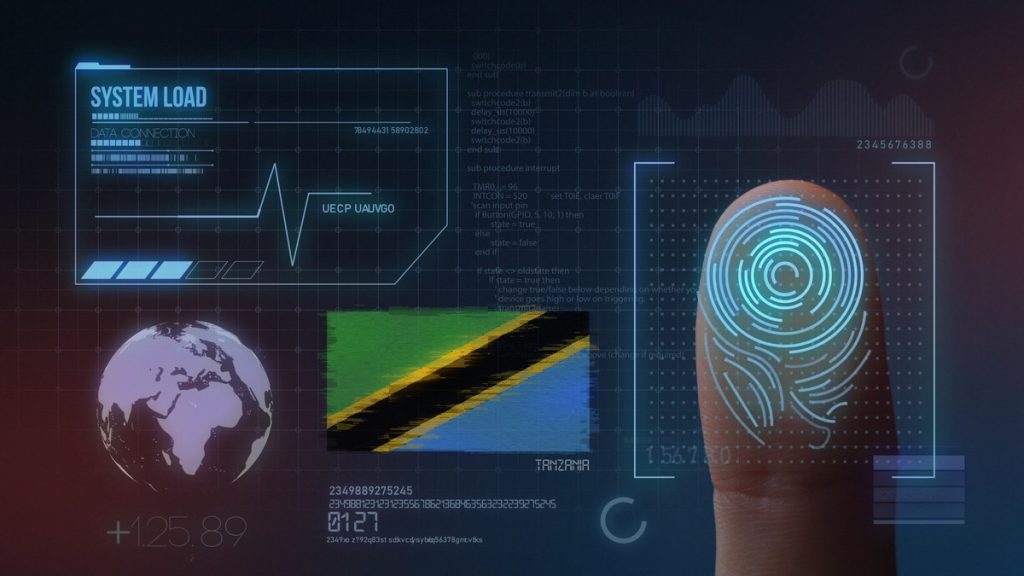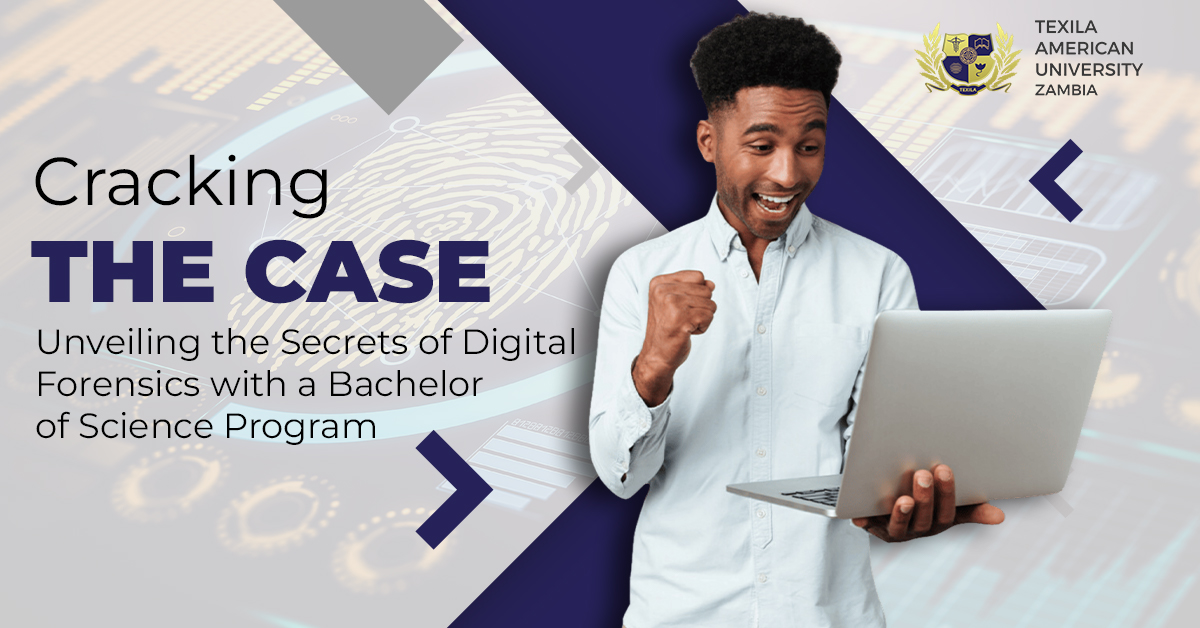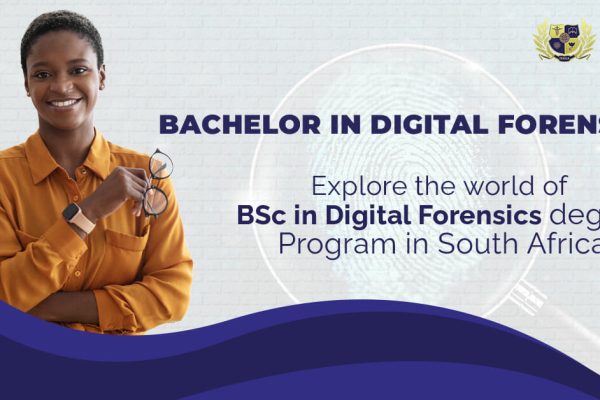|
Tired of Reading? Please listen to the blog
|
Blog Summary
Digital forensics is vital in today’s tech-driven world, where gathering, analyzing, and presenting digital evidence is key to solving crimes. A Bachelor of Science in Digital Forensics provides essential skills. This degree covers core topics like data recovery, cybersecurity, and legal aspects. Graduates gain expertise in investigative techniques. The program opens diverse career paths in cybersecurity and law enforcement. With this degree, individuals contribute to combating cybercrime and shaping the digital realm.
Digital forensics is a fascinating field that involves collecting, analyzing, and preserving digital evidence for legal investigations. In today’s technology-driven world, the demand for skilled Computer Forensics professionals continues to grow. Suppose you have a passion for solving mysteries and a keen interest in technology. In that case, pursuing a Bachelor of Science degree in Digital Forensics can unlock a world of exciting career opportunities. This article will delve into the secrets of digital forensics, exploring the importance of this field, the structure of a Bachelor of Science program, the skills and knowledge gained, and the career paths available.
Introduction
In the digital age, where every aspect of our lives is intertwined with technology, crimes and security breaches often leave digital footprints. Computer Forensics is uncovering these footprints, analyzing digital evidence, and presenting it in court. It plays a crucial role in criminal investigations, cybersecurity incidents, and other legal matters involving digital proof. By pursuing a Bachelor of Science degree in Digital Forensics, you can acquire the necessary skills and knowledge to crack complex cases and contribute to the pursuit of justice.
Understanding Digital Forensics
Digital forensics involves systematically collecting, preserving, analyzing, and presenting digital evidence. This evidence can be extracted from various digital devices like computers, smartphones, tablets, and Internet of Things (IoT) devices. Computer Forensicsexperts use specialized tools and techniques to recover deleted files, analyze network traffic, decrypt encrypted data, and reconstruct digital activities. The ultimate goal is to provide accurate and reliable evidence that can be used in legal proceedings.
The Importance of Digital Forensics in Solving Crimes
Digital forensics plays a crucial role in modern crime investigations. It helps uncover substantial evidence, identify suspects, and establish timelines of events. Whether it’s a cybercrime, financial fraud, intellectual property theft, or even a homicide case with digital evidence, Computer Forensics specialists are essential in solving these crimes. Their expertise ensures that digital evidence is appropriately collected, preserved, analysed, and presented in court, leading to successful prosecutions.
Bachelor of Science Program in Digital Forensics
A Bachelor of Science in Digital Forensics program gives students a comprehensive understanding of the field. It prepares them for careers in law enforcement agencies, cybersecurity firms, government agencies, or private sector organizations. The program typically covers a range of core courses, practical training, and opportunities for specialization.
Core Courses in Digital Forensics
The core courses in a Computer Forensics Bachelor of Science program cover the required foundational knowledge. These courses may include:
- Introduction to Digital Forensics
- Strategic Management Information Systems
- File Systems Analysis
- Advanced Database Design and Development
- Data Recovery Techniques
- Big Data and Cloud Forensics
- Mobile Device Forensics
- Software Development Methodologies
By studying these core courses, students develop a solid understanding of the principles and methodologies used in digital forensics investigations.

Practical Training and Hands-on Experience
A crucial aspect of a Bachelor of Science program in Digital Forensics is practical training and hands-on experience. Students can work with industry-standard tools and software used in real-world investigations. They learn to handle and examine digital evidence, conduct forensic analysis, and document their findings. This practical experience enhances their technical skills and prepares them for the challenges they may face in their future careers.
Specializations and Elective Courses
Many Bachelor of Science programs in Digital Forensics offer specializations or elective courses that allow students to focus on specific areas of interest. These specializations may include:
- Cybersecurity and Incident Response
- Network Forensics
- Mobile Device Forensics
- Malware Analysis
- Forensic Accounting
By specializing in a particular area, students can tailor their education to align with their career goals and develop expertise in high-demand domains of Computer Forensics.
Skills and Knowledge Gained in a Bachelor of Science Program
A Bachelor of Science program in Digital Forensics equips students with the skills and knowledge necessary to excel. Here are some critical areas in which students gain expertise:
Data Recovery and Analysis
Students learn techniques for recovering and analyzing data from various storage devices, including hard drives, solid-state drives, and mobile devices. They become proficient in data carving, file system analysis, and reconstruction.
Cybersecurity and Incident Response
Computer Forensics professionals need a solid understanding of cybersecurity principles to effectively identify and respond to security incidents. Students learn about common cyber threats, incident response protocols, and techniques to secure digital evidence.
Legal and Ethical Considerations
In the field of Computer Forensics, legal and ethical considerations are paramount. Students gain an understanding of the legal framework surrounding digital evidence, privacy rights, chain of custody, and rules of evidence admissibility.
Investigative Techniques
Investigative techniques are crucial for Computer Forensics professionals. Students learn to conduct effective investigations, gather evidence, analyze data, and prepare comprehensive reports.
Career Opportunities in Digital Forensics
A Bachelor of Science degree in Digital Forensics opens many career opportunities. Graduates can pursue roles such as:
- Digital Forensics Analyst
- Incident Response Analyst
- Cybersecurity Consultant
- Forensic Accountant
- Law Enforcement Officer
- Security Analyst
These professionals can work in law enforcement agencies, cybersecurity firms, consulting companies, and government organizations or establish their best digital forensics practice.
Conclusion
Cracking the case and unveiling the secrets of Computer Forensics requires a solid foundation of knowledge and skills. Pursuing a Bachelor of Science in Digital Forensics provides aspiring professionals with the expertise needed to excel in this exciting field. From understanding the intricacies of digital evidence to mastering investigative techniques, this degree equips graduates with the tools necessary to contribute to the fight against cybercrime, support legal investigations, and protect digital assets. By harnessing the power of technology and applying it to the pursuit of justice, digital forensics professionals play a vital role in today’s digital landscape.
FAQs
Q: What are the admission requirements for a Bachelor of Science program in Digital Forensics?
A: To be eligible for the Bachelor of Science in Digital Forensics program, for 4 years – a candidate must have completed Credit or better in any of the 5 subjects in Grade 12 and for 2 years – a candidate must have completed Diploma in Information Technology or any relevant specialization.
Q: Can I pursue a Bachelor of Science in Digital Forensics online?
A: Several universities like Texila American University offer online programs in Digital Forensics, providing flexibility for students who may have other commitments or prefer remote learning.
Q: What programming languages are essential for digital forensics professionals?
A: While proficiency in programming languages is beneficial, it is only sometimes a requirement for digital forensics professionals. However, knowing scripting languages such as Python or PowerShell can be advantageous in automating tasks and analyzing data.
Q: Are scholarships available for students pursuing a Bachelor of Science in Digital Forensics?
A: Many universities and organizations offer scholarships specifically for students studying digital forensics or related fields. It’s worth exploring scholarship opportunities to support your education.
Q: How TAU Zambia helps students build their profile to take on the world as young leaders and entrepreneurs?
A: 1. Earn While You Learn – Students get an opportunity to contribute to the school and earn in the process.
2. Students get hands on business, Leadership, Organisation, and entrepreneurial experience
3. Helps students to implement the best decisions in critical business situations.
4. The students will be able to foster sound fiscal practices through analysis of financial statements and establishment of accounting procedures to ensure effective managerial decision making.
5. Case studies, Book reviews and Article reviews help the students to develop their learning ability by enhancing their knowledge.
6. Research work would enhance the student’s knowledge regarding the real time scenarios of business across the globe











